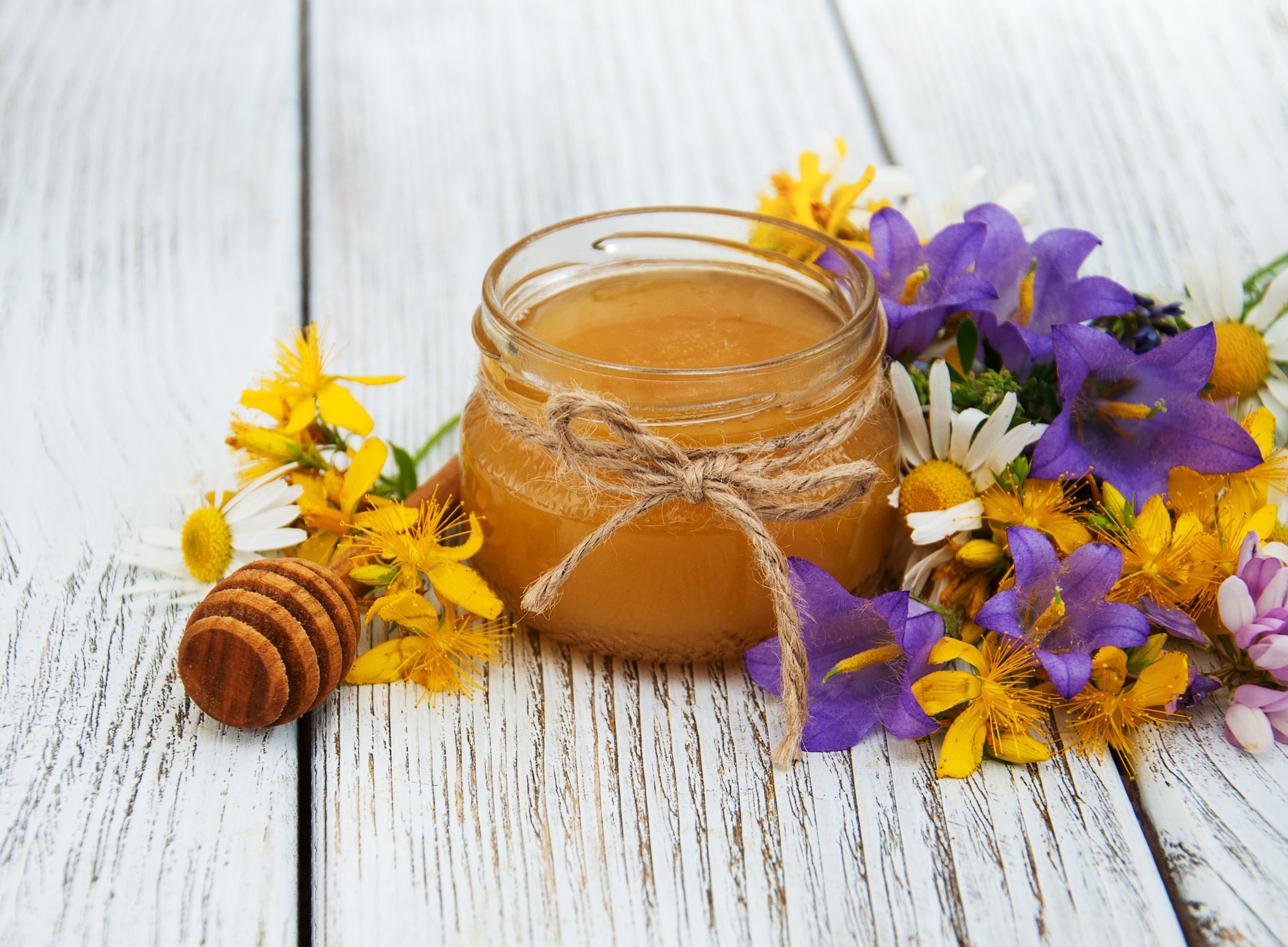Best Natural Sweeteners You Should Be Having Instead Of Sugar
Discover > Texas Home Cooking > Best Natural Sweeteners You Should Be Having Instead Of Sugar
What are the best natural sweetners you can use for your coffee, tea, and dessert baking? Discover them in this post.
Trying to balance the several natural sweeteners that exist and maintaining a minimum sugar (how long does sugar last?) consumption is my everyday struggle. To do a fair bit of baking and still keep a check on sugar intake is what I strive for, though it’s much easier said than done.
For a while, I had given up on all dessert baking as I couldn’t stand pouring the copious cups of sugar that most recipes called for.
If like me, you have struggled with the ins and outs of basic baking measurements, read this blog here.
I realized that this wasn’t a long-term solution, and I had to find an alternative soon before a binge ensued.
Standing in front of the baking aisle, searching for healthier sugar substitutes was definitely overwhelming. To begin with, there are so many different types of sugar, and within those, are several more forms! There is coarse sugar, granulated sugar, and confectioners’ sugar just to name a few forms you can find regular white sugar in, and of course these can be also produced as a best organic sweetener or non-organic too.
Sugar dependency and cravings for sweet foods is a health issues, probably bigger than the pandemic right now. Sweeteners are hidden in food labels under various fancy names, fooling even the observant eye. The sea of information and misinformation on the Internet doesn't help much either.
Healthiest Natural Sweeteners
Natural sweeteners aren’t stripped of all nutrition during the refining process. Better yet, they aren’t processed at all. What is the healthiest sweetener on the market?
So today, to make it simpler for people like me, who are trying their best to tread lightly when it comes to sugar, we are presenting the different sources of healthy natural sweeteners available and how you can make the healthiest choices from what there is.
In no particular order, here are the best natural sweeteners!
1.) Raw Honey
The drink of Gods, honey (how long does honey last?) is one of the oldest, best sweeteners for gut health, outstanding in its taste and remarkable in its properties. Made by honeybees from the nectar of flowers, the sweetness of honey varies depending upon its variety and pureness. Honey from Sedr trees is considered among the best natural sweeteners for diabetics. While all sweeteners should be had in moderation, due to their low glycemic index, honey works as a wonderful natural sweetening agent. That’s why it’s included in our list of the healthiest natural sweeteners.
You can find raw honey in various colors, textures, fragrances, and flavors, depending on the plant source. It is important to note that pasteurized honey loses much of its nutrient profile, so make sure you pick a label that says, ‘Raw’. Local honey is also helpful in alleviating symptoms of seasonal allergies. You can get your own local Texan honey from SweetNes Honey Beetique and Aunt Sue's Barn.
In baking, honey may slightly increase rising time of the dough. So, you will have to substitute a couple fight sugar for 3/4th cup of honey and reduce the liquid content by three to four tablespoons. If you have need to add baking soda, adjust by reducing it by about half a teaspoon. Baked goodies with honey have a slightly soft texture.
2.) Maple Syrup
Drizzle it over pancakes, waffles, or porridge, maple syrup (how long does maple syrup last?) is a must-have with all. While highly processed maple syrup is quite commonly found, unprocessed maple syrup is one of the best sweeteners for gut health. It is obtained by boiling the sap of maple trees till the sugars separate. This is further condensed to make a thick syrup-like liquid.
If you find natural Maple syrup in different hues of amber, don't be surprised. The darker-colored syrup is made from sap that is extracted later on in the harvest season. It is characterized by a stronger Maple flavor and is preferred for baking over lighter ones.
The darker Maple syrup also has a higher antioxidant activity, that protects against cardiovascular disease. Raw Maple syrup contains inulin, which is a gut-friendly prebiotic fiber. Maple syrup is also a source of manganese, zinc and potassium and polyphenols that reduce inflammation.
Substitute 1 cup of white sugar for 3/4th cup of this natural sweetener and reduce the quantity of liquid by 4 tablespoons for best results.
3.) Monk Fruit
Monk fruit is a natural sugar alternative that is up to 300 times sweeter than white sugar! Despite that, it is one of the best sweeteners for gut health. It is a zero-calorie sweetener and has been used in traditional Chinese medicine since ancient times. Unlike most other fruits, the sweetness in monk fruit doesn't come from its natural sugars. Interestingly, Monk fruit sweetener is obtained by removing the seeds and skin and juicing it. The juice is then dried into a concentrated powder.
Due to the presence of a unique antioxidant, mogroside, the monk fruit is a low glycemic and healthy natural sweetener.
With 0 calories, monk fruit extract is used as a standalone natural sugar substitute. Although it is difficult to find, you can get monk food sweetener in liquid, powder, or granule form.
Natural Sweeteners That Are Not Recommended
Agave Syrup
A very common sugar substitute in the market is agave sweetener. It comes from the agave cactus and is about 1 1/2 times sweeter than sugar. A vegan alternative for honey, agave nectar has gained popularity in the recent past. The fact that it doesn't increase your blood sugar and insulin has resulted in it being marketed as a natural sweetener for diabetics.
Nutritionally speaking, agave sweetener is akin to high fructose corn syrup (how long does corn syrup last?). Agave syrup is almost always processed and contains anywhere near 55 to 97% fructose. The fructose in any sweetener gives it a low glycemic index. Yet this high concentration is a point of concern for many health experts who label agave as an unhealthy sugar alternative.
Studies suggest high fructose sweeteners can lead to obesity, high blood fats, diabetes, and fatty liver syndrome. For this reason, agave does not make it on our list of natural healthy sweeteners.
Stevia
This natural sugar substitute is probably the most widely known and commonly found sweetener around. Stevia has zero calories and many people believe that it is one of the healthiest natural sweeteners. It is obtained from the leaves of the stevia plant, indigenous to South America. Natural compounds called steviol glycosides are what give the stevia leaves their distinct sweetness. Close to 15 times sweeter than sugar, the end product, mostly powdered, is considered to be among the best natural sweeteners for coffee.
While like all other natural sweeteners, stevia is safe to use in moderation, you are more likely to find stevia in a highly processed form. Many times, this processed form also contains chemicals like maltodextrin, aspartame, sodium saccharin, and sodium cyclamate.
Stevia does not add calories or spike your blood sugar levels, so in that sense, I suppose it is a natural sugar substitute. But I would not say it is a healthy one. The taste still tricks your body into thinking it is eating sugar, and thus sends mixed hormonal signals to your brain. Some scientists believe that stevia still perpetuates your desire for sweet foods.
Final Say
At the end of the day, have even natural sweeteners in moderation. However, they’re way better than the highly refined stuff. Look out for hidden sugars in foods like condiments, sauces, bakery, etc.
Instead of dodging one kind of sweetener, try to limit added sugars as much as you can. And on days you can’t, stick to the healthiest natural sweeteners.






